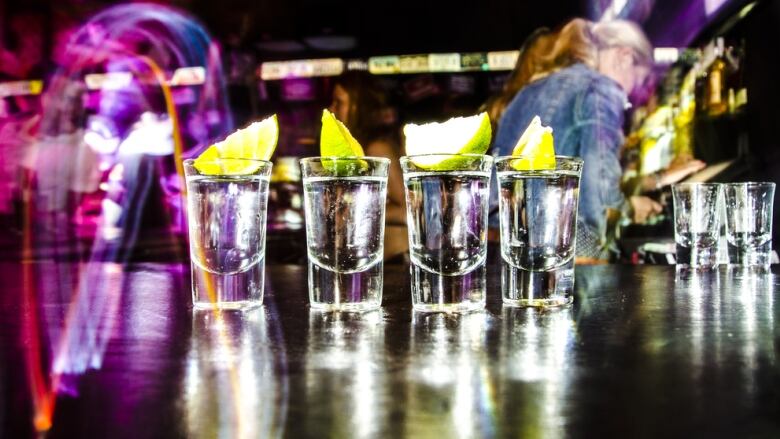Binge drinking rising at 'worrisome' rate in Canada, University of Calgary study finds
20% of Canadians binge drink, 40% of young adults, study finds

Some 20 per cent of Canadians are binge drinking a trend that has been increasing in all age groups, but especially among young people, a study has found.
"I think it's extraordinarily high," the study's lead author, Dr. Andrew Bulloch of the University of Calgary, said Wednesday.
"It's worrisome because binge drinking is associated with traffic crashes, sexual violence, homicide and accidents in general," Bulloch added.
From 1996 to 2013, the number of women binge drinking increased from seven to 14 per cent, and men from 21 to 26 per cent.
When it comes to young adults aged 18 to 24 the percentage of binge drinkers skyrockets to almost 40 per cent.
"I think it's a cultural thing, I think it has to do with happy hour, and with acceptability of drinking a lot in a short period of time," Bulloch told The Homestretch.
Also, alcohol is becoming more affordable, more available, and especially more effectively advertised, he added.

The study defined binge drinking as having five or more drinks at one sitting at least once a month for a year a consistent measure used in epidemiological studies since the 1960s.
Binge drinking is different from alcohol dependence, which is more of a daily occurrence.
"But we think that binge drinking is a bad sign and can lead down the road to alcohol dependence," Bulloch said.
He also noted that it puts a burden on the healthcare system, and is associated with depression and suicide.
"People that are depressed tend to self-medicate, both with cigarettes and also alcohol. But what's a little more surprising is that people that drink heavily are more likely to get depressed, so the relationship is actually reciprocal," Bulloch said.
The Canadian results mirror studies in the U.S. and U.K.
National guidelines for Canada suggest that men should not drink more than 20 drinks a week, and women 15.
Bulloch says the government should take steps to curb alcohol advertising, including casual signage outside pubs that say, "Happy Hour begins at 3 o'clock."
Researchers were able to study the data based on a series of cross-sectional national health surveys carried out by Statistics Canada about every two years over the 17-year period.
The study was published in the October edition of CMAJ Open.
With files from The Homestretch












_(720p).jpg)


 OFFICIAL HD MUSIC VIDEO.jpg)
.jpg)



























































































